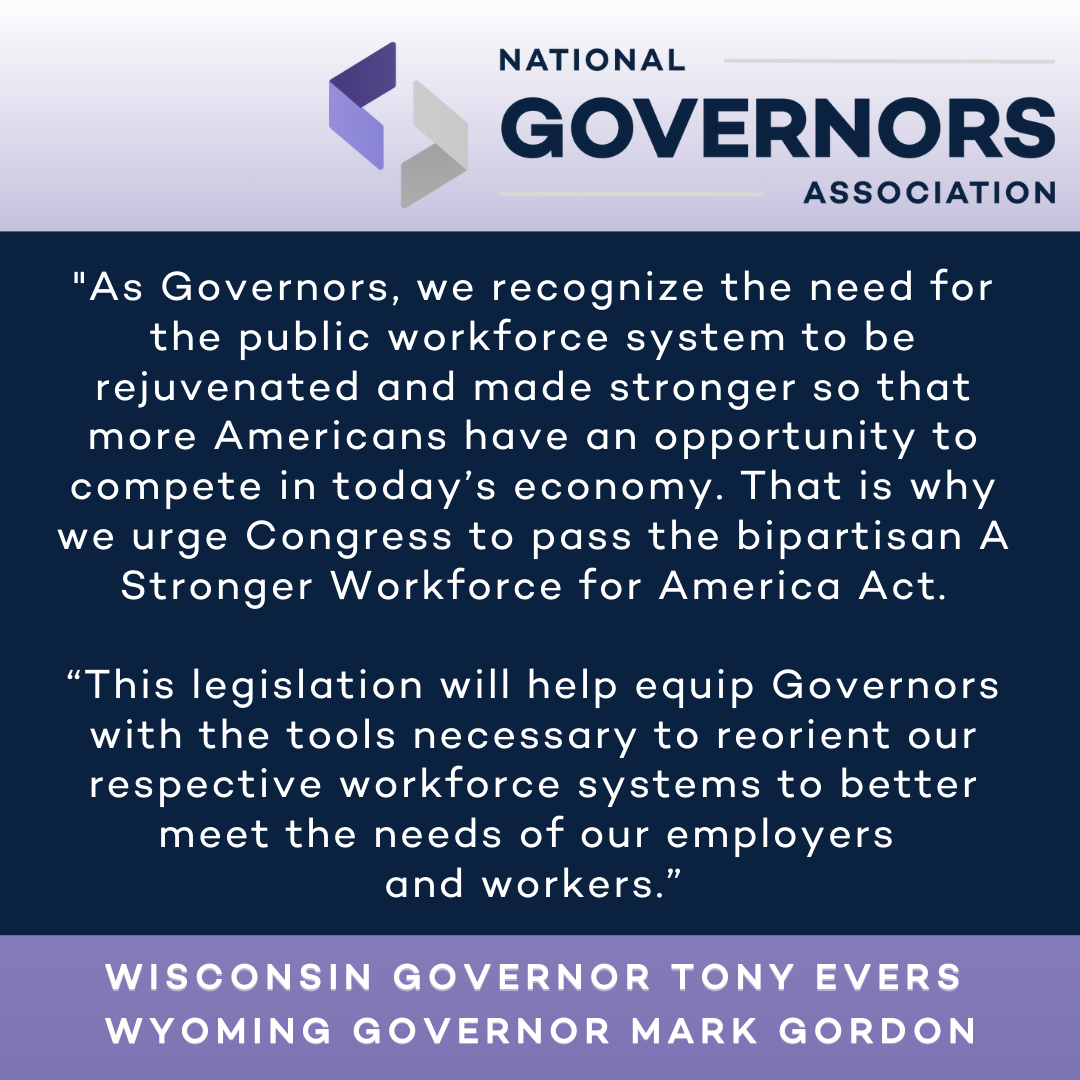(Download)
To explore how Governors and state leaders may better understand and support the on-demand workforce, in 2018 the National Governors Association Center for Best Practices and the Institute for Work & the Economy, with support from the Annie E. Casey Foundation and Walmart, accepted a bipartisan cohort of states into the State Collaborative Consortium to Understand and Support the On-Demand Workforce (the Consortium): Alabama, Colorado, Connecticut, Hawaii, Illinois, Maryland, New Jersey, Pennsylvania and Virginia.
In the context of emerging technologies, increasing automation, and rapid globalization, national and state policymakers often focus on skills, education and training when considering how to best prepare for the ‘future of work.’ It is, however, equally important to understand how policy, legal frameworks and corporate structures can affect or incentivize specific work arrangements and how those work arrangements impact workers – particularly in light of the increasing shift toward on-demand work. By focusing on these issues as part of their broader economic and workforce development strategies, Governors can enhance their state’s economic competitiveness and increase access to economic opportunity and financial stability for all workers in their state, including those engaged in on-demand work.
On-Demand Worker
Any worker who does not receive a W-2 tax form for some or all of their compensated work, such as entrepreneurs and the self-employed, as well as workers whose income is reported on a W-2 form but whose schedules and places of work are unpredictable and episodic.
The Current Legal Protections and Opportunities to Support American Workers framework presented below describes existing legal protections and opportunities for states to shape policy to benefit all workers, including on-demand workers. The framework is based on the Consortium’s work over the past two years, including the development of an ontology of characteristics and classifications of the on-demand workforce as well as recommendations for understanding and supporting the on-demand workforce, and is organized around four key categories of worker-employer relationships, each with their own legal protections:

Traditional Employee – Full-time, salaried workers who receive a paycheck and whose income is reported on a W-2 form.
Shift/Temporary/Seasonal Employee – Workers who receive a paycheck and whose income is reported on a W-2 form but whose scheduling, terms and conditions of short-term or temporary employment, are episodic and determined by the entity that pays them.
Dependent Non-Employee – Workers who whose income is not reported on a W-2 form and whose scheduling, terms and conditions of short-term or temporary employment, are episodic and determined by the entity that pays them.
Incorporated Entrepreneur – Workers who have established a legally incorporated businesses and who have a primary goal of growing the business into an ongoing enterprise.
Key
✅ Workers in this category benefit from this type of protection or support under the law. Ellipses indicate additional information is available; click the box to view.
🟨Some workers in this category benefit from this type of protection or support under the law. Ellipses indicate additional information is available; click the box to view.
❌Workers in this category do not benefit from this type of protection or support under the law.
Protections To On-Demand Workers
Most workplace benefits are tied to formal and (often) full-time employment, leaving many on-demand workers without the types of protection that workers with formal employment agreements enjoy. Workers in formal employer-employee relationships are guaranteed certain protections, stability and working conditions under federal regulations, including the Civil Rights Act of 1964, the Fair Labor Standards Act of 1938, the Age Discrimination in Employment Act of 1967 and the Occupational Safety and Health Act of 1970. However, those protections do not extend to those who are not classified as employees. In some cases, they do not cover part-time or temporary employees, either. This absence of protections and benefits may leave independent, part time and temporary workers in precarious financial, safety and legal circumstances. States can explore how they can provide on-demand workers with opportunities to achieve stability and security and create a more level playing field so that employers can benefit from the flexibility of on-demand work.
| Legal Protection or Institutionalized Support | Traditional | Shift / Temporary / Seasonal Employee | Dependent Non-Employee | Incorporated Entrepreneur | Opportunity to Expand Protection or Support (click to view) |
|---|---|---|---|---|---|
| Hourly minimum wage protections | ✅... | ✅... | ❌ | ❌ | Expand existing minimum wage requirements or equivalent to more workers. |
| Consistent and predictable work schedules | ✅... | ❌ | ❌ | ❌ | Require that workers be given adequate notice of their schedule. |
| Workers compensation | ✅... | ✅... | ❌ | ❌ | Create a workers' compensation equivalent for on-demand workers. |
| Unemployment Insurance | ✅... | 🟨... | ❌ | ❌ | Expand access to unemployment insurance to on-demand workers. |
| Employer sponsored healthcare, retirement and paid leave | 🟨... | 🟨... | ❌ | ❌ | Expand access to benefits to on-demand workers. |
| Recourse for legal challenges | 🟨... | 🟨... | ❌ | ❌ | Establish an entity to which on-demand workers can report questionable activity and receive legal counsel. |
Legal And Administrative Clarity For On-Demand Workers
Persistent lack of clear rules, regulations and oversight for the on-demand economy makes enforcement of and compliance with existing laws more difficult. Certain actors may benefit from this lack of clarity, to the detriment of on-demand workers. As result, states may look to fairly and clearly enforce existing laws as well as provide new guidance to make clear the definition of “employee” for purposes of determining whether workers are entitled to the benefits and protections of formal employees.
| Legal Protection or Institutionalized Support | Traditional | Shift / Temporary / Seasonal Employee | Dependent Non-Employee | Incorporated Entrepreneur | Opportunity to Expand Protection or Support (click to view) |
|---|---|---|---|---|---|
| Consistent enforcement of worker classification | ✅... | ✅... | ❌ | ✅... | Audit state processes for enforcing worker classification and develop clear guidelines for determining classification. |
| Clear expectations and documentation of tax obligations | ✅... | ✅... | ❌ | ❌ | Provide on-demand workers with official documentation that clarifies their tax obligations. |
| Fair and unbiased hiring and work scheduling | ❌ | ❌ | ❌ | ❌ | Require greater transparency and independent evaluations of worker information and employment algorithms. |
Mobility And Development Of On-Demand Workers
The growth of the on-demand economy poses new challenges for traditional education and training systems. Over the past several decades, workers have faced an increasing economic burden for training and education that could exacerbate existing disparities among populations and geographies. Many barriers that all workers face in achieving career mobility and advancement are especially burdensome for on-demand workers. Addressing these barriers for all workers can support a more dynamic workforce where workers have the ability to advance and move into and out of the type of work that they prefer.
| Legal Protection or Institutionalized Support | Traditional | Shift / Temporary / Seasonal Employee | Dependent Non-Employee | Incorporated Entrepreneur | Opportunity to Expand Protection or Support (click to view) |
|---|---|---|---|---|---|
| Affordable opportunities for reskilling and upskilling | ❌ | ❌ | ❌ | ❌ | Support and incentivize participation in lifelong learning. |
| Regulatory system that promotes job mobility | ❌ | ❌ | ❌ | ❌ | Reduce barriers to work such as occupational licenses and noncompete agreements. |
| Opportunities to enhance entrepreneurial skills | ❌ | ❌ | ❌ | ❌ | Support programs that provide entrepreneurial opportunities and skill development. |













 Traditional
Traditional Dependent Non-Employee
Dependent Non-Employee Incorporated Entrepreneur
Incorporated Entrepreneur